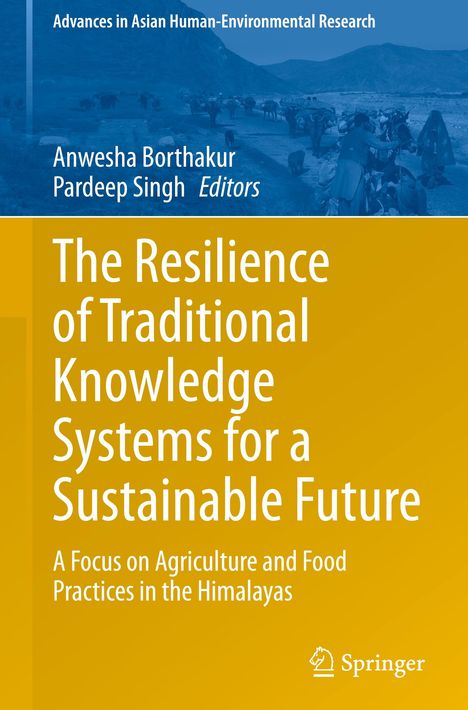The Resilience of Traditional Knowledge Systems for a Sustainable Future, Gebunden
The Resilience of Traditional Knowledge Systems for a Sustainable Future
- A Focus on Agriculture and Food Practices in the Himalayas
(soweit verfügbar beim Lieferanten)
- Herausgeber:
- Anwesha Borthakur, Pardeep Singh
- Verlag:
- Springer, 11/2024
- Einband:
- Gebunden, HC runder Rücken kaschiert
- Sprache:
- Englisch
- ISBN-13:
- 9783031568572
- Artikelnummer:
- 12121647
- Umfang:
- 296 Seiten
- Gewicht:
- 610 g
- Maße:
- 241 x 160 mm
- Stärke:
- 22 mm
- Erscheinungstermin:
- 30.11.2024
- Hinweis
-
Achtung: Artikel ist nicht in deutscher Sprache!
Klappentext
This book is an effort to draw attention to the resilience of traditional knowledge systems for a sustainable future in the Himalayas with a particular focus on agriculture and food practices. Through examples from the region, it underscores the importance of these practices in navigating contemporary global environmental challenges. The Himalayan region, known for its socio-cultural diversity and unique agricultural ecology, emerges as a major hotspot of climate change. Therefore, acknowledging and recognizing the lived experiences of the locals along with their traditional knowledge associated with agriculture and food systems becomes imperative for devising adaptation and mitigation strategies amidst the unfolding environmental and climate crisis. Drawing upon insights from local communities and experts deeply rooted in the Himalayan context, this book not only documents traditional agricultural and food systems but also sheds light on the pressing anthropogenic challenges threatening their sustainability. We believe that research and documentation of traditional knowledge practices of the local and indigenous communities are essential for tackling the current and projected global environmental challenges. This book advocates for a holistic approach to addressing both current and future global environmental challenges. It serves as a timely call to action for researchers, policymakers, and practitioners alike.



